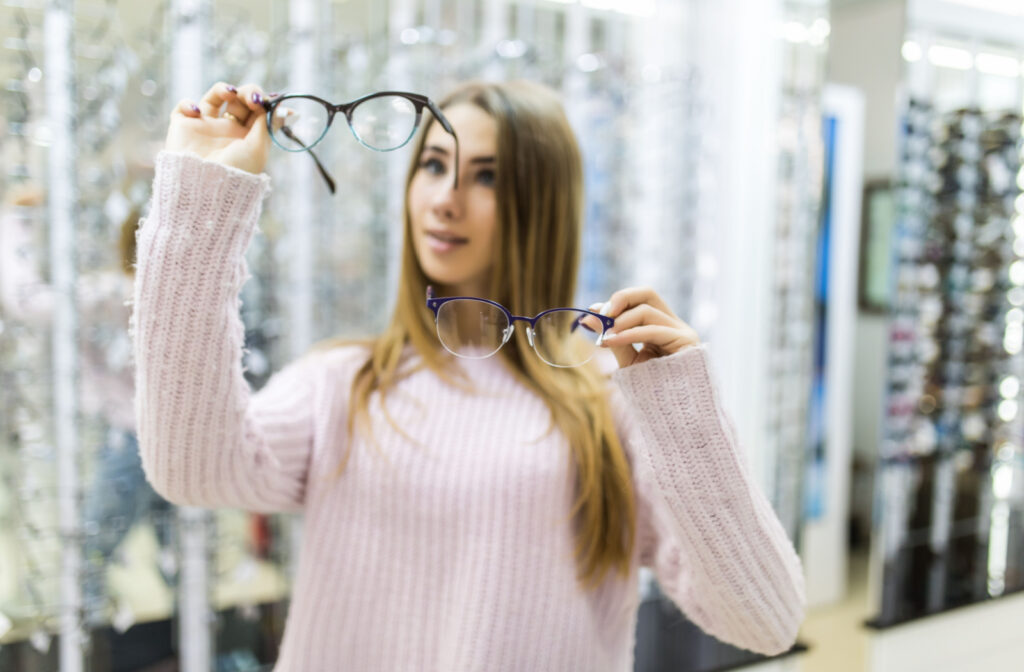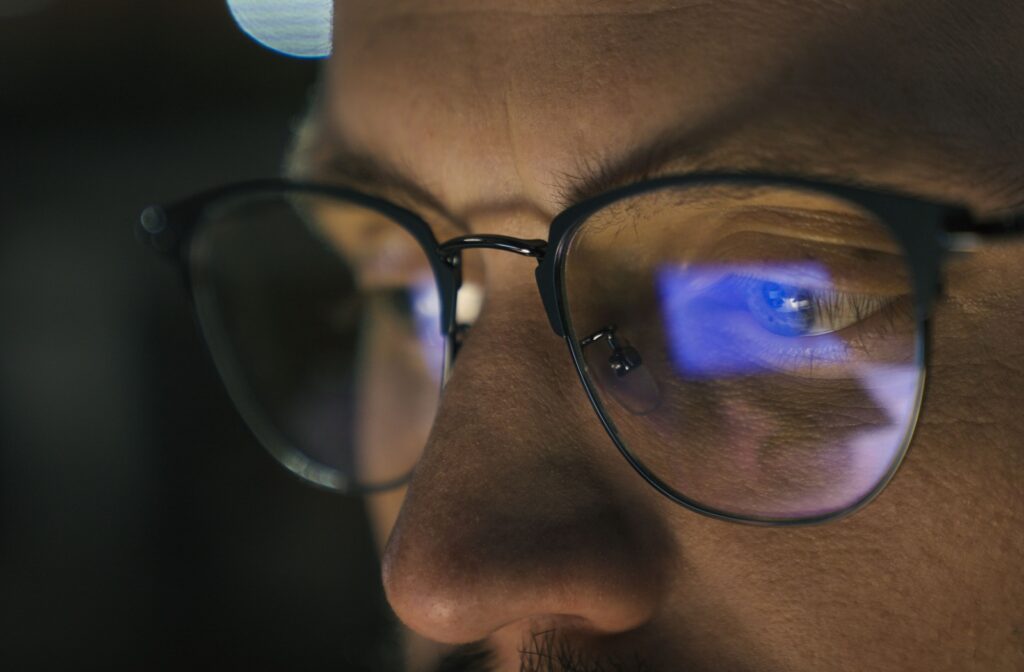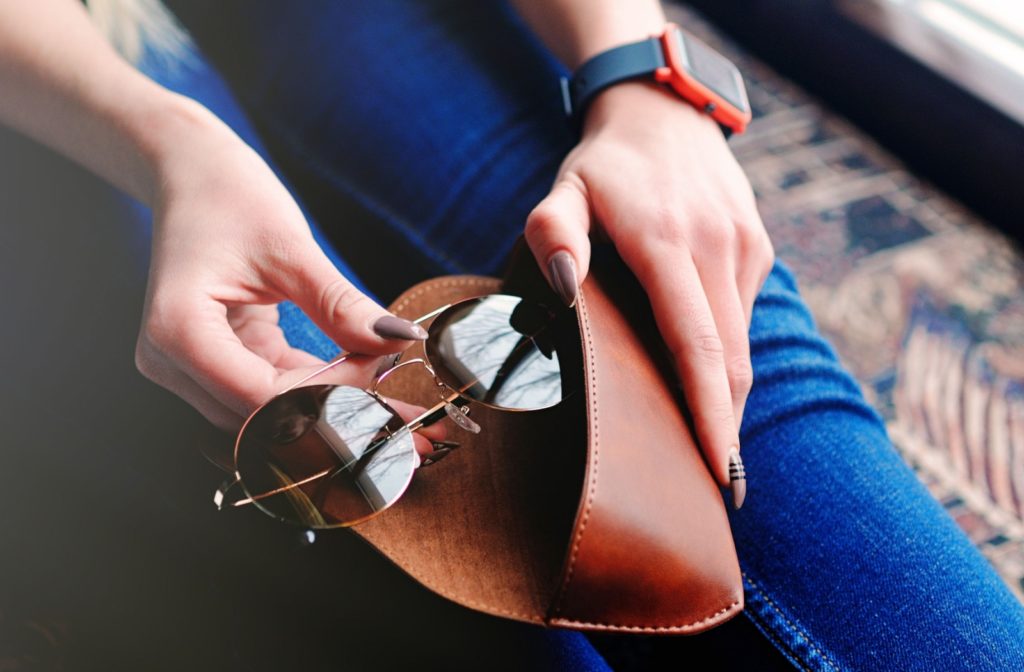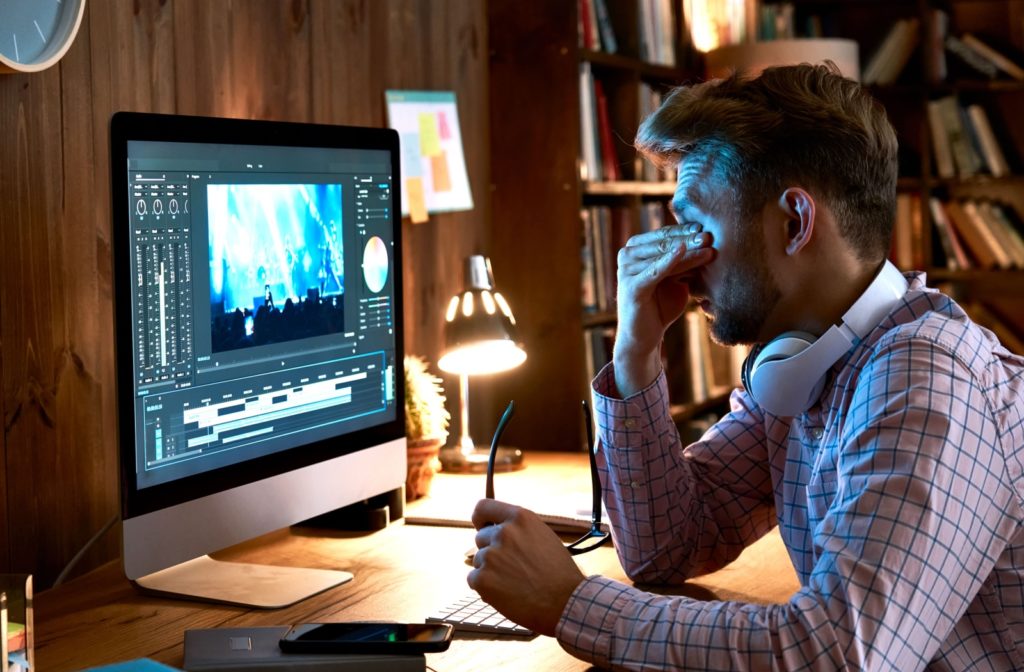Your eyeglass prescription is typically valid for one to two years from the date of your eye exam. […]
How Long Is an Eyeglass Prescription Valid?


Your eyeglass prescription is typically valid for one to two years from the date of your eye exam. […]

Anti-glare coatings help reduce glare from bright light sources, such as sunlight or headlights. Conversely, anti-reflective coatings reduce internal and external reflections on your lenses, improving visual clarity. […]

If you spend significant time using digital devices and computers, blue light filters may help. They reduce the amount of blue light that reaches your eyes, which prevents unwanted side effects. If you wear prescription glasses, a blue light filter on your lenses can make screens much more comfortable on your eyes. […]

Whether you have one or multiple pairs of sunglasses, here are some tips on how to properly store them:
Clean your sunglasses before storage
Keep them in their case
Avoid exposing them to extreme temperatures
Do not store them on top of your head
Use a microfiber cloth to avoid scratches
Store in a dry place to prevent damage
Check for loose screws regularly
Avoid using harsh chemicals for cleaning
Handle them with both hands to prevent bending
Use a sunglasses organizer for safekeeping […]

Worried that wearing glasses might make your eyesight worse? Don’t be! Glasses don’t weaken your eyes—they simply help you see […]

Driving at night can be daunting for many people, especially when there are very few streetlights to help you see. Night blindness, or nyctalopia, affects how well you see in low-light conditions, which can lead to increased anxiety. A comprehensive eye exam can test your vision in low-light conditions.
Glasses equipped with anti-reflective (AR) coatings or specialized lenses can help improve vision for individuals with night blindness, making nighttime activities safer and more comfortable. Since night blindness can cause difficulties beyond driving, such as walking in dimly lit areas or finding your way inside darkened rooms, these glasses can promote good vision and safety even in low-light settings. […]

While scientific research is still ongoing, many people find blue light glasses helpful in reducing digital eye strain, which can sometimes lead to headaches. Blue light from digital screens can interfere with your sleep cycle, and this disruption can contribute to headaches and other issues. By wearing blue light glasses, especially during evening hours or extended screen use, you may experience less eye strain and possibly fewer headaches. […]

In general, a higher number means a “bad” prescription, while the plus (+) and minus (-) symbols refer to what kind of refractive error your glasses must correct. […]